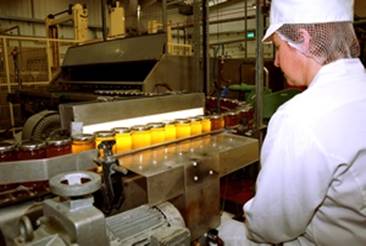Total quality culture (TQC)
Modern quality management
 The traditional method of quality control made the holding of stocks essential. Pressures to reduce stock holding and their associated costs led to the development of Quality Assurance and Total Quality Management (TQM) as replacements for Classic QC. The emphasis now is to prevent the purchase or production of defective goods in the first place, not to catch them after the event.
The traditional method of quality control made the holding of stocks essential. Pressures to reduce stock holding and their associated costs led to the development of Quality Assurance and Total Quality Management (TQM) as replacements for Classic QC. The emphasis now is to prevent the purchase or production of defective goods in the first place, not to catch them after the event.
It is now appreciated that quality depends on the people and the processes used, not just the materials. Quality and efficiency has been widened, therefore, to cover the entire firm, not just materials and products. The avoidance of faulty production requires that three aspects are efficient:
- Methods - systems and procedures
- People - both line and staff functions
- Materials
All these have to be efficient for a quality outcome. All aspects of a firm's operations have to be examined and improved across the firm.
Businesses do not operate in isolation, but as part of a group of organisations forming the supply chain, which includes suppliers, wholesalers, agents and final customers. So, quality assurance teams must work with all of these groups and organisations to ensure that quality is maintained at all levels. This has led to the movement from traditional quality methods to broader quality approaches and philosophies including:
- Quality Assurance - procedures as well as products are examined and changed if necessary to ensure/assure customers that products are fit for purpose.
- Total Quality Management (TQM) - this is the system where the responsibility for quality lies with ALL employees. It commits the organisation to continuous improvement (Kaizen) of all activities relating to the quality of the product and the satisfaction of the customer. TQM is really a culture, as to be effective it requires a change in attitudes.
- Self-checking - the individual or group responsible for the product or task checks quality all the time, ensuring that the next person in the chain receives a quality product.
- Team working. Firms work with their suppliers, sometimes even investing money and/or buying shares in them, to ensure that the product purchased is of the desired quality, so needing no checking on delivery; in effect it is pre-checked at the supplier's factory.
Quality has become a team responsibility ensuring a focus on high quality at all times. However, quality is not a static concept. The quality of the competitor products may improve, changing the competitive position so requiring a consistent and on-going process of analysis of the external environment and a commitment to continuous improvement.
